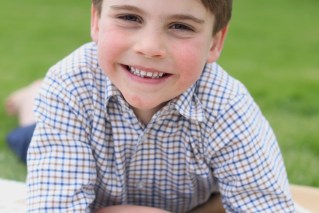Learn a language while you’re asleep: It’s not a con new research suggests


A clever experiment by Swiss researchers have show it's possible to begin learning in a deep sleep state. Photo: Getty
Apologies to children of ambitious parents – but you’ll probably be wearing headphones to bed for the next couple of years because of this story.
Swiss researchers have apparently proven to be true what was once an urban myth, or at least a dodgy marketing exercise: it’s possible to learn a new language in your sleep.
The scientists, from the Institute of Psychology and of the Interfaculty Research Cooperation “Decoding Sleep” at the University of Bern, came at the problem by asking a simple question:
If what we learn during waking hours is recapitulated and consolidated in the brain as we sleep (as considerable evidence suggests), then why can’t the brain learn new information during sleep, which can in turn be consolidated when we’re awake?
Common wisdom say it’s impossible
As the scientists observe in their paper, published in Current Biology: “Learning while asleep is a dream of mankind, but is often deemed impossible because sleep lacks the conscious awareness and neurochemical milieu thought to be necessary for learning. Current evidence for sleep learning in humans is inconclusive.”
So what if consciousness isn’t necessary for learning?
In fact, it’s during slow-wave sleep, also known as deep sleep, where the body is most relaxed and, with the activation of two particular groups of cells, consciousness is lost, that the brain is busy with memory consolidation – or sleep-dependent memory processing.
In other words, when you’re most out of it is when the learning you’ve done while awake is further embedded as a memory.
New words learned in a midday nap
It was during slow-wave sleep that the scientists exposed a group of German-speaking volunteers to a number of words from a completely made-up language (to avoid the problem of the volunteers having even a rudimentary knowledge of a foreign language).
Each fake word was paired with a German word. For example, the nonsense word “tofer” was paired with “haus” (house), and “guga” for “elefant” (elephant).
Each German word designated an object that was clearly smaller or larger than a shoebox.
While the volunteers had a midday nap, each word pair was played four times in succession with the order of words switched (tofer-Haus, Haus-tofer) “to promote a flexible binding in both directions of the pseudowords with the real German words”.
The scientists played these word pairs at a steady rhythm that mimicked the frequency of slow waves.
The volunteers didn’t know they were learning
The volunteers weren’t told they’d be hearing words while sleeping – and the idea was to see if the faux words might leave some sort of trace in their memory, even at an unconscious level.
When the volunteers woke up, they were presented with the made-up words without their translations.
They were then given an implicit memory test: asked to imagine what the faux word denoted, and to guess whether it was smaller or larger than a shoebox — an approach that allowed researchers to tap into their unconscious memory.
And guess what? They managed to give the correct answer at a higher rate than simply guessing – but only as long as they’d heard the words at precise times during slow wave sleep.
MRI scanning was performed during vocabulary retrieval in 15 of the 41 volunteers to infer whether the episodic memory system had supported “encoding” during sleep.
The scans found that the hippocampus, a brain structure essential for wake-associative learning, was activated and therefore supported the retrieval of sleep-formed associations.
“It was interesting that language areas of the brain and the hippocampus – the brain’s essential memory hub – were activated during the wake retrieval of sleep-learned vocabulary because these brain structures normally mediate wake learning of new vocabulary,” said Marc Züst, co-author of this paper, in a prepared statement.
“These brain structures appear to mediate memory formation independently of the prevailing state of consciousness – unconscious during deep sleep, conscious during wakefulness.”
Besides its practical relevance, this new evidence for sleep-learning challenges current theories of sleep and theories of memory. The notion of sleep as an encapsulated mental state, in which we are detached from the physical environment is no longer tenable.








